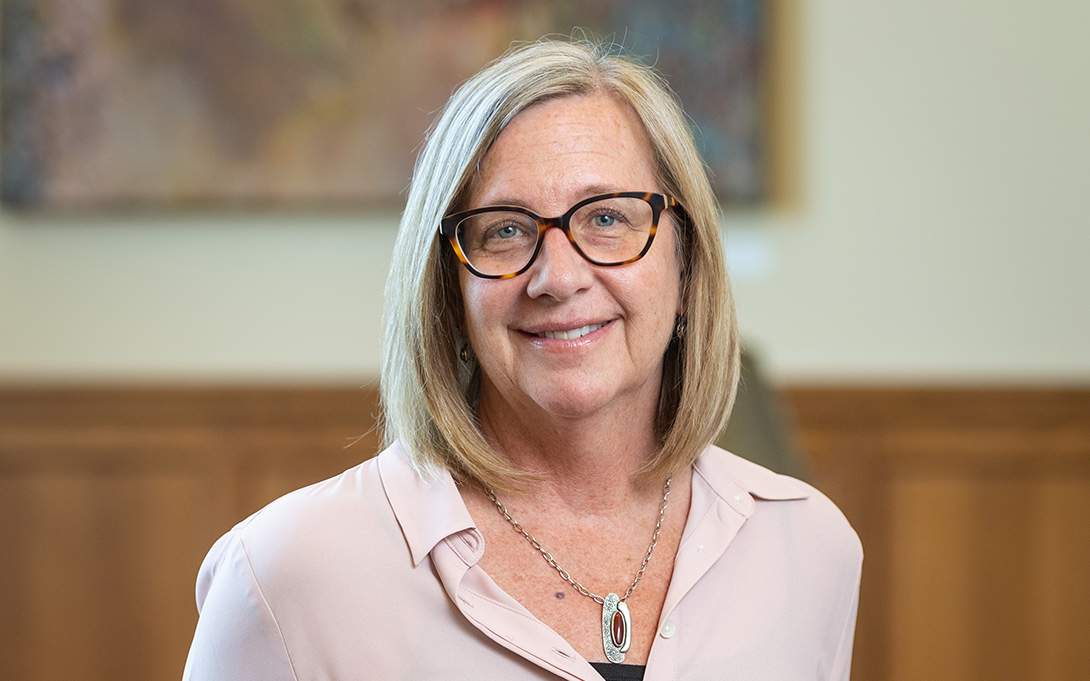
Restrictive abortion policies in the U.S. are predicted to have negative effects on maternal health, women's economic opportunities and social welfare systems.
A multidisciplinary team of experts from the University of Michigan warns that without adequate public safety net programs, families and children will experience increased poverty and hardship. In the face of limited access to affordable contraception and rising economic and health inequalities, policymakers must prioritize preventing unintended pregnancies and strengthening social welfare systems, they say.
Their findings are published in a special 100th anniversary issue of the Milbank Quarterly: The Future of Population Health: Opportunities and Challenges, co-edited by Paula Lantz, the James B. Hudak Professor of Health Policy at U-M's Ford School of Public Policy and professor of health management and policy at the School of Public Health.
Lantz is also co-author of the research article: Abortion Policy in the United States: The New Legal Landscape and Its Threats to Health and Socioeconomic Well-Being.
What were the goals of your article in this special issue?
It is predicted at least half of U.S. states will have very restrictive abortion laws. Our multidisciplinary team representing the fields of medicine, demography, economics, public health and law attempted to review all the research that exists on the likely impact of restrictive abortion policies on maternal health and on economic and social welfare outcomes for families and children.
Our review found that there will likely be very significant negative effects of restrictive abortion policies on women's health including an increase in maternal mortality especially among Black women. New state abortion policies are also restricting much more than elective abortions, making it extremely difficult for physicians to practice evidence-based medicine for a wide range of patients, not just those seeking abortions.
Existing research suggests restrictive abortion policies will lead to a decrease in women's educational attainment and their full-time employment, and an increase in child poverty, family economic distress and bankruptcy, child maltreatment and foster care placement, public safety net participation, and pressure on beleaguered social welfare systems.
What are the implications of the study's findings for social welfare policies, and how can policymakers use this information to promote better health outcomes for women?
Policymakers need to better understand who the people are who seek abortions and why. Sixty percent of people who get abortions already have at least one child, and 50% are already living below the poverty level. Unintended pregnancy is common in the U.S. for many reasons, including because of limited access to affordable methods of contraception that are highly effective, contraception failure, and in some cases the presence of violence or coercion in sexual relationships.
Restrictive abortion policies will further exacerbate health and economic inequality in the U.S. unless public safety net programs and social welfare systems are adequately resourced and reformed to meet the increase in demand from significantly fewer abortions. Laws that restrict abortion access should be accompanied by increased attempts to prevent unintended pregnancy and a strengthened social welfare system.
However, in almost every state where legislators are restricting or nearly banning abortion, the same legislators are against education regarding human sexuality and intimate partner violence; access to affordable and high-quality contraception; policies and programs that bring income, food and housing security to children and families; affordable child care; child protection services; and affordable health insurance.
Why is it important for researchers and funders to quickly launch new research programs given the new abortion policy landscape?
It has been almost 50 years since abortion was illegal in the U.S. While there are some good data systems in place that capture health and social welfare outcomes, the new legal landscape is having effects that are not easily captured with existing data systems and research projects.
This includes things like how many women are having to cross state lines and at what distance to receive abortion care, how many women are resorting to self-abortion or illegal procedures, how many ob-gyns are feeling too restricted in their medical practice and thinking about relocating; the list could go on.
Your latest article, co-authored with other U-M experts, is part of a special 100th anniversary issue of the Milbank Quarterly on The Future of Population Health: Opportunities and Challenges. What are the major themes and contributions of this special issue?
The 35 articles in this special issue, written by both established and emerging scholars and practitioners, emphasize several important things for addressing the health of populations across the globe, especially the big problem in the U.S. and so many other countries of inequalities in health by gender, place, race, ethnicity and socioeconomic status. One important thing is the role of public policy, social systems and institutions in creating inequalities in community and population health.
The other theme is that health care is not the main driver of health—health and health care are not the same thing. To improve health and reduce disparities in health, there needs to be a much stronger focus on all the economic and social drivers of health. There are papers in the special issue on important things like childhood poverty, education, environmental quality, housing, immigration policy, firearm injury prevention, emergency and pandemic preparedness, and on health care but in a broader social context.
This Q&A was prepared by Juan Ochoa of Michigan News
